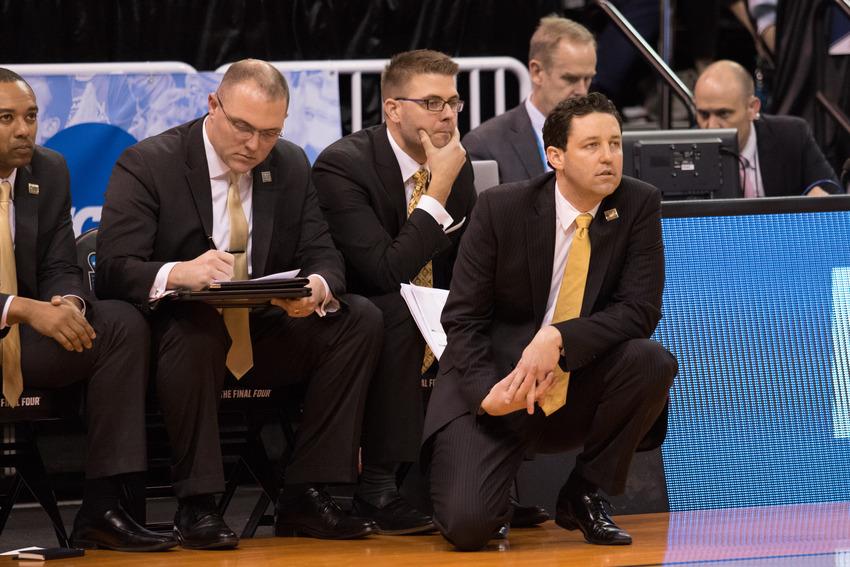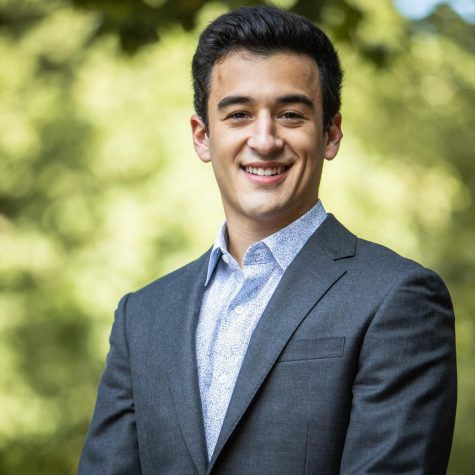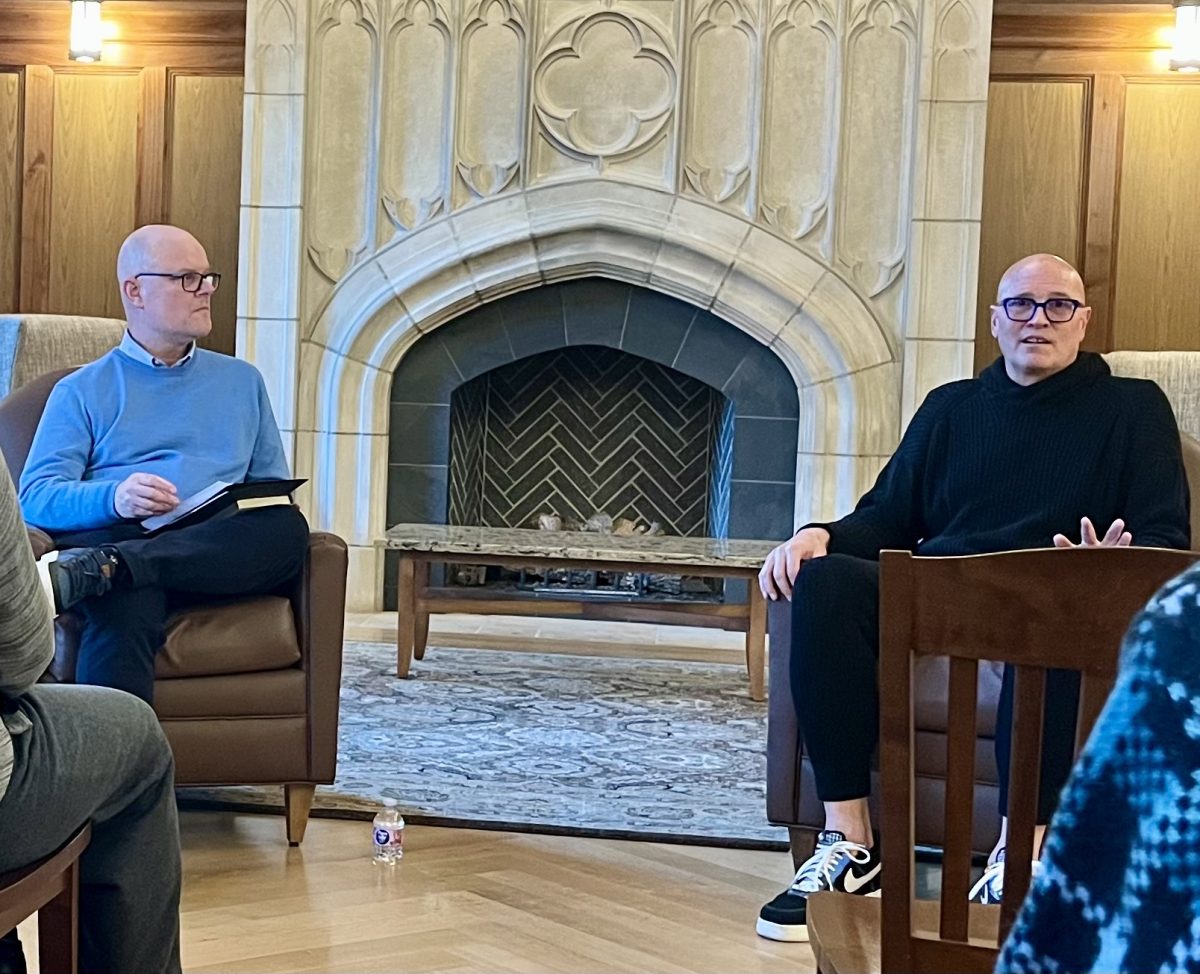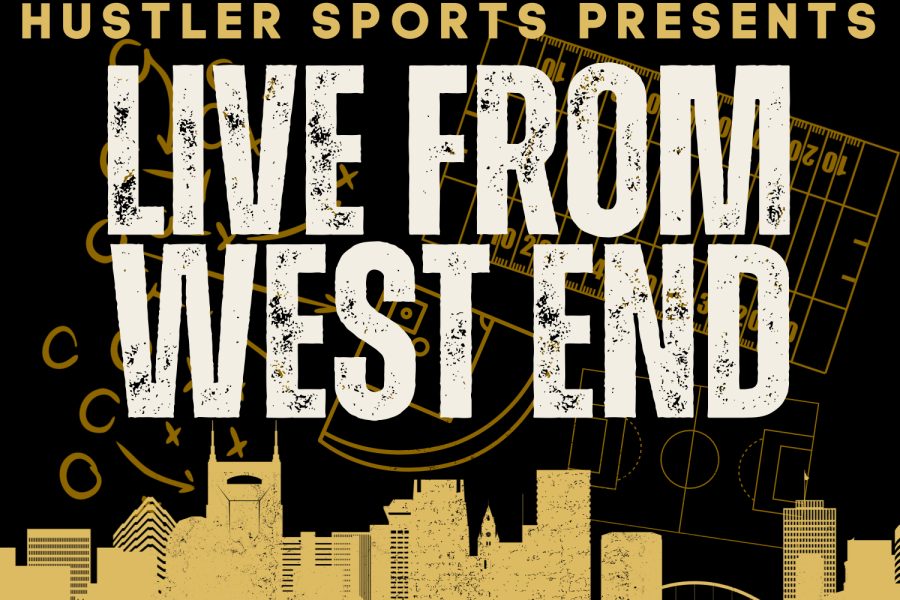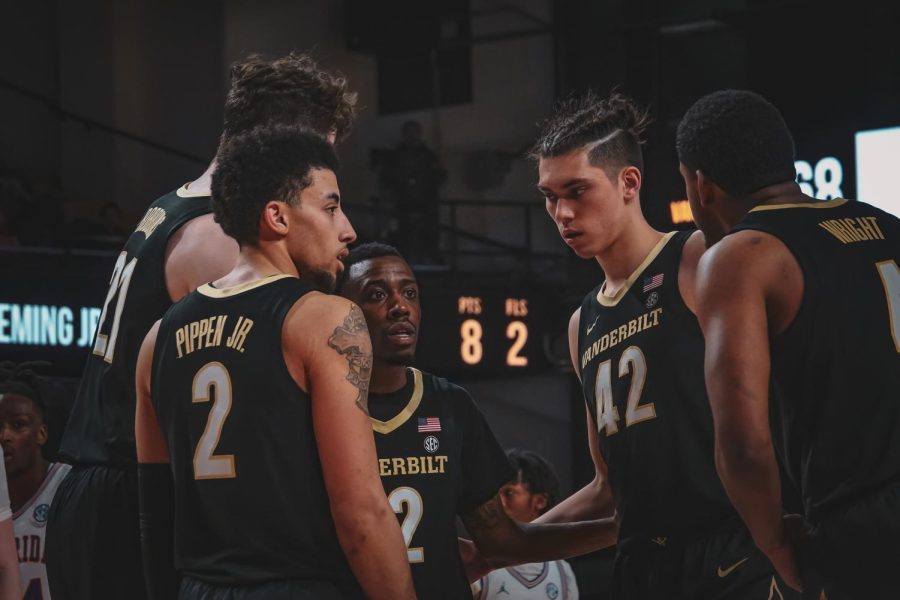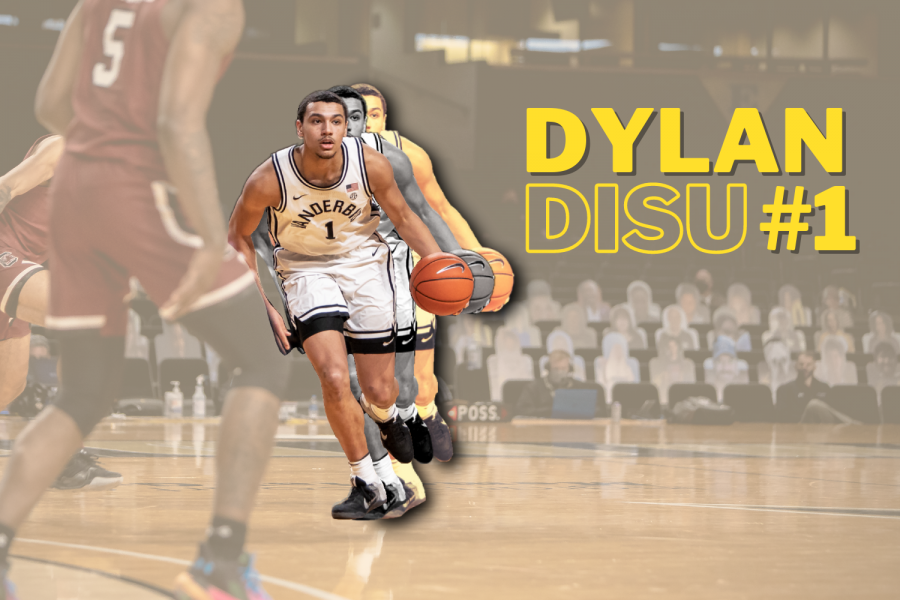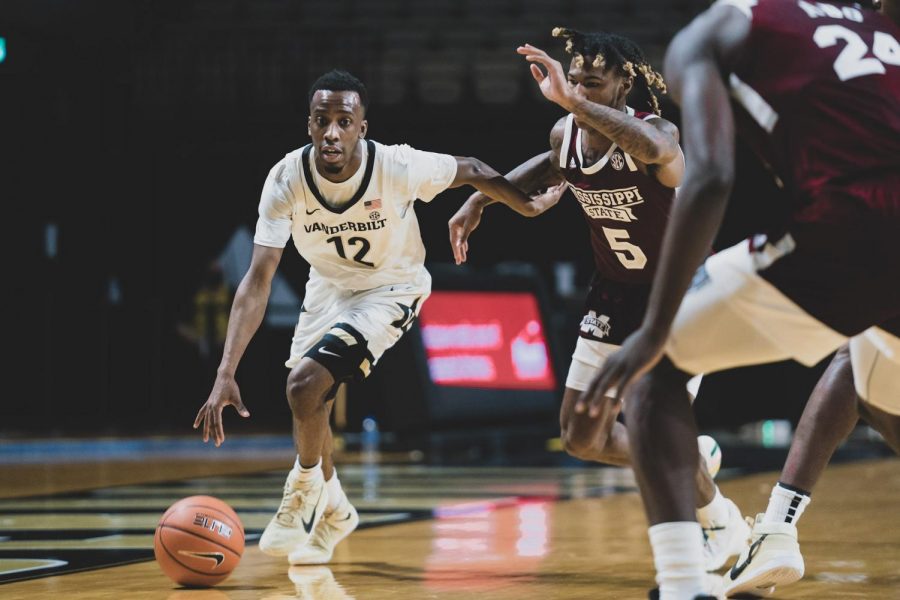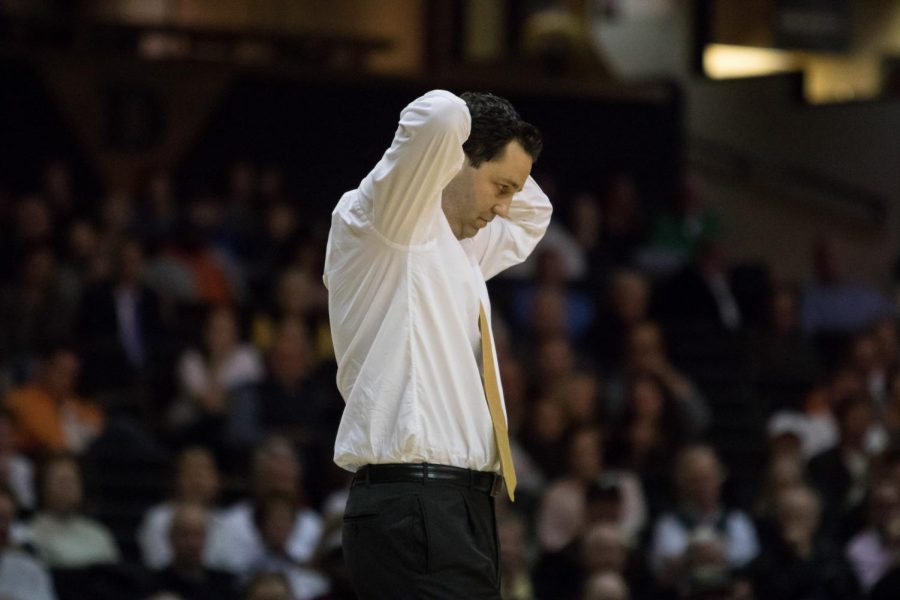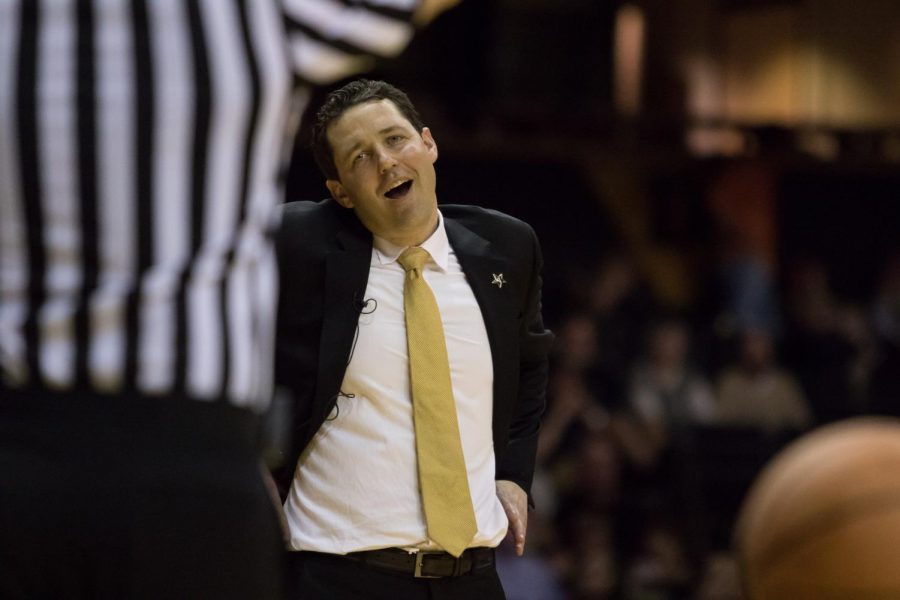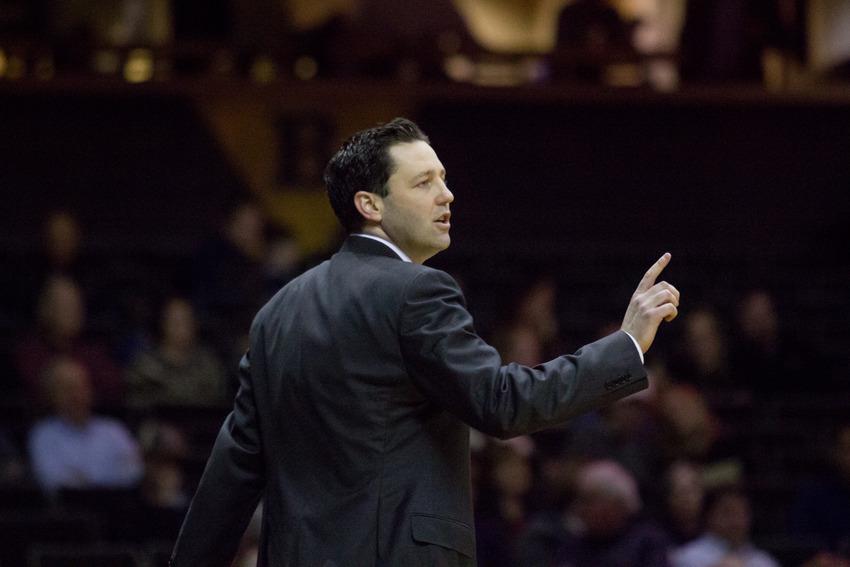Have you watched a nationally televised Vanderbilt basketball game recently?
If you have, surely, you’ve heard about The Shot.
We’re not talking about Riley LaChance’s buzzer-beating three to lift Vanderbilt over Mississippi State last season. We’re talking about The Shot.
The Shot, ironically, did not include any Vanderbilt player, yet it’s mentioned by the color commentator in just about every Commodore game.
Let’s rewind to the first round of the 1998 NCAA Tournament.
The 13th seed Valparaiso Crusaders were dancing for their fourth straight year. They had plenty of success getting into the tournament, but the program was still seeking its first-ever win in March. On the other hand, the heavily favored fourth-seeded Ole Miss Rebels held a 69-67 lead with less than ten seconds left.
Who would take the final shot for Valpo?
The choice was ultimately up to Homer Drew, the legendary head coach of the Valparaiso Crusaders. Drew faced a career-defining decision, but ultimately made the clear choice; the same choice any other coach, player, or fan would have made. He opted to put the ball in the hands of his most trusted player: his program’s star; his own son.
Formerly Mr. Indiana in high school, this point guard turned down numerous offers to remain in-state, playing for his father’s program. He had blossomed into a two-time Mid-Continent Conference player of the year, averaging nearly twenty points per game. Bryce Drew, former Valparaiso star, NBA player, and current Vanderbilt head coach, practically bled basketball. He was the perfect person to take the game-winning three.
As a senior, Drew had the opportunity to extend his college career, make school history, and pull off an unlikely upset with a clutch shot. However, he risked ending his journey at Valpo if he missed. With roughly seven seconds left in the game, Drew let it fly from beyond the arc.
The ball sailed far right, bouncing off the iron straight into the outstretched arms of an Ole Miss rebounder. Valparaiso was quick to intentionally foul, but this game seemed over. Bryce Drew’s college career seemed to have reached an end.
Regardless of the outcome, Drew learned an invaluable lesson. This lesson would eventually translate to his coaching career, according to former Commodore guard Riley LaChance.
LaChance now plays professional basketball in Poland. A year removed from his career at Vanderbilt, he still credits Coach Drew for teaching him how to handle himself at the highest level. It’s easier to find meaning in what Drew said; after all, each lesson was backed by his own playing experience.
“When I missed three free throws against Kentucky last year,” LaChance said, “that was probably the lowest point in my basketball career. But when Coach Drew reached out to me, he made one thing crystal clear: I will always have another chance. I just needed to learn from my mistake and use it to become a better player, because the next time I’m in that position, he would trust me to be the guy. Hearing that from an experienced player just means so much more.”
On March 13th, 1998, Drew experienced this himself.
Ansu Sesay, the Ole Miss center, miraculously missed both free throws. Valpo corralled the rebound and quickly called a timeout, setting up one more possession. Bryce Drew had to learn from his mistake. Just as he told LaChance, there will always be another opportunity.
With 2.5 seconds on the clock, the Crusaders threw a full-court baseball pass off the inbound, which was immediately redirected to Bryce Drew.
Drew heaved up The Shot.
The rest was history. Drew hit the dagger and awarded Valparaiso with their first ever tournament win in spectacular fashion.
20 years later, commentators still seem to consider The Shot as Coach Drew’s greatest achievement. If you ask any Vanderbilt fan, coach, or player, they’d tell you the truth. Bryce Drew’s legacy has little to do with his shot. Instead, his legacy has everything to do with how he’s helped transform this Vanderbilt Commodore basketball program.
Warm Welcome to West End
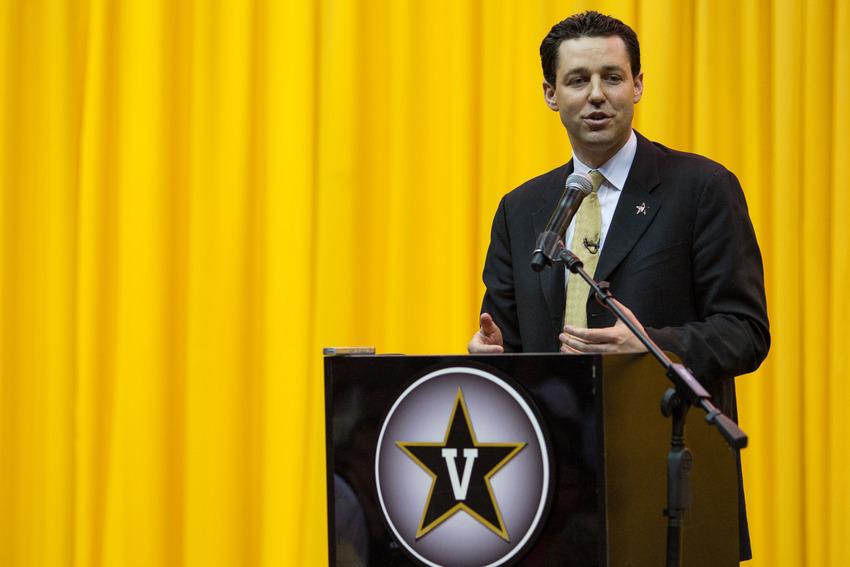
When Bryce Drew’s six-year NBA career came to an end, it was only fitting that he embarked on his own coaching career. After all, coaching ran in his blood—at that time, his brother, Scott, was the head coach of Baylor, and Homer remained the head coach of Valparaiso.
Drew got his first gig in 2005 as an assistant coach for Valparaiso, where he coached alongside his father. He was eventually promoted to head coach when Homer retired, but the Drew legacy had already become synonymous with the Valparaiso program.
11 years after he began coaching, Bryce saw the opportunity to create his own legacy; one that would not be overshadowed by his father’s career as a coach, or his own career as a player. After Vanderbilt and head coach Kevin Stallings parted ways, the school quickly hired Drew in April of 2016.
“When I was hired, I wanted to make one thing clear,” Drew said. “I wanted to show the players that I trusted them. I wanted to show how much I cared about them. Look, it’s not easy getting a new head coach just like that. I think one of the most important things I learned from coaching with my father is how a sense of positivity and sincerity can really go a long way for these players.”
Drew’s positivity never went unnoticed, as he helped his players make a seamless transition.
Luke Kornet, former center for the Commodores, played for three years under Stallings’ jurisdiction. When Drew was brought in as coach, Kornet had only one year adjust to the new system, make his final impact on the program, and hopefully, garner attention from NBA scouts. This posed quite the challenge, but Kornet knew he was in good hands. Drew was able to adapt the same philosophy he learned coaching with his father, using the “sense of positivity and sincerity” to take reigns of the locker room.
“It was definitely a weird time,” said Kornet. “Obviously, all the guys on the team had been recruited to this program by Stallings, but as soon as we met Coach Drew, we knew he was the perfect guy for the job. I remember in our first workouts, the positivity and energy that he had was something that really stood out to me. That was a lot more of a professional approach; it gave me the idea of how to do things at the highest possible competitive level while maintaining myself.”
Clearly, Drew’s professional approach had an impact on Kornet, who now plays for the New York Knicks.
Drew treated his players with a sense of positivity and respect, a characteristic he had learned from his own father. As both LaChance and Kornet mentioned, this trait has paid dividends through Drew’s recruiting success.
Shaping the Future of Vanderbilt Basketball
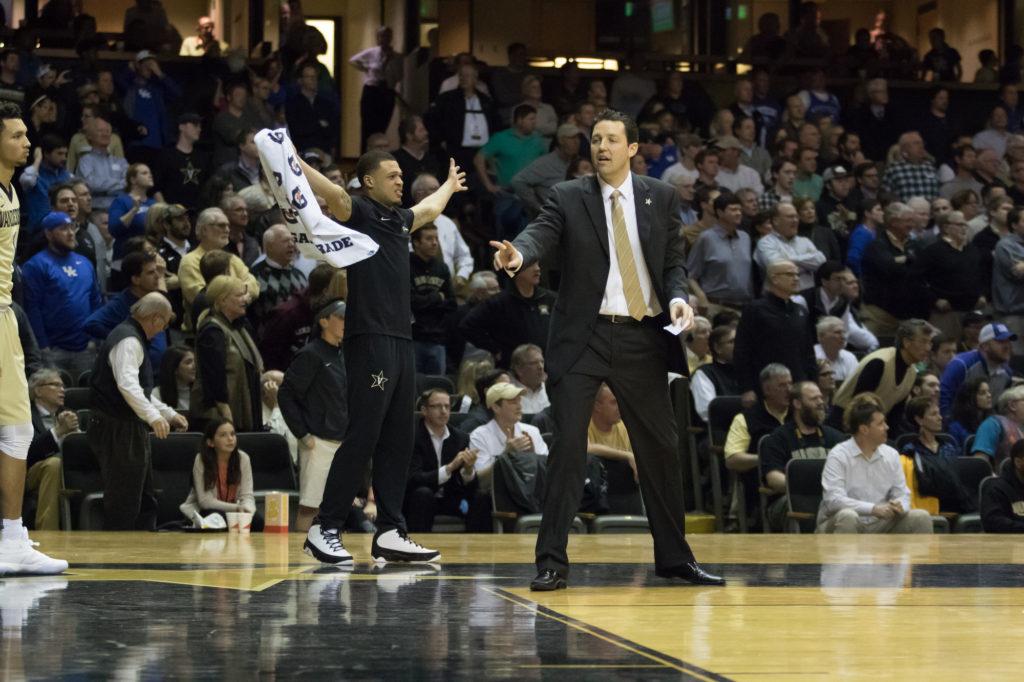
In two years at Vanderbilt, Drew has made the tournament once and catalyzed many impressive upsets along the way. His legacy, however, manifests itself through recruiting. As Drew entered his third season at Vanderbilt, his roster included the likes of Darius Garland and Simi Shittu, the two highest-ranked recruits in school history.
LaChance spoke about his passion to build the program, saying “Coach Drew is really passionate about taking this program to places it’s never been to before. He is going to hold everyone accountable. If you look at his recruiting, the program is heading the right direction, and he won’t let anything get in the way of that.”
The Commodores currently hold a 6-2 record, but have lost Garland to a season-ending knee injury. Garland’s impact, however, goes above and beyond his talents on the court. Garland and Shittu have set the precedent for the future of Commodore basketball; one in which five-star, nationally heralded recruits see Drew’s mission, and can feel the Memorial Magic manifested in his passion.
“His energy and positivity has put this program in good hands,” said Kornet. “It has absolutely helped him in recruiting, too. He has a process that all high schoolers can buy into. He’s so personable and so good at what he does, and you just know after meeting him once that you can trust him. It’s so easy for players to become emotionally drawn to him and he can bring out the very best of them talent-wise. I’m sure he carries that into recruiting.”
With recruiting for next season under way, Drew has already locked down two four-star recruits in Dylan Disu and Austin Crowley.
But don’t expect Drew to stop there. His legacy as a Commodore head coach is being built, day-in and day-out, through his passion for the game, and for his players. He’s only in his third season. He’s just getting started.

